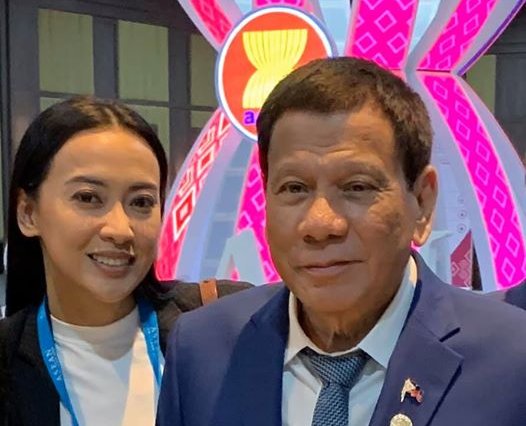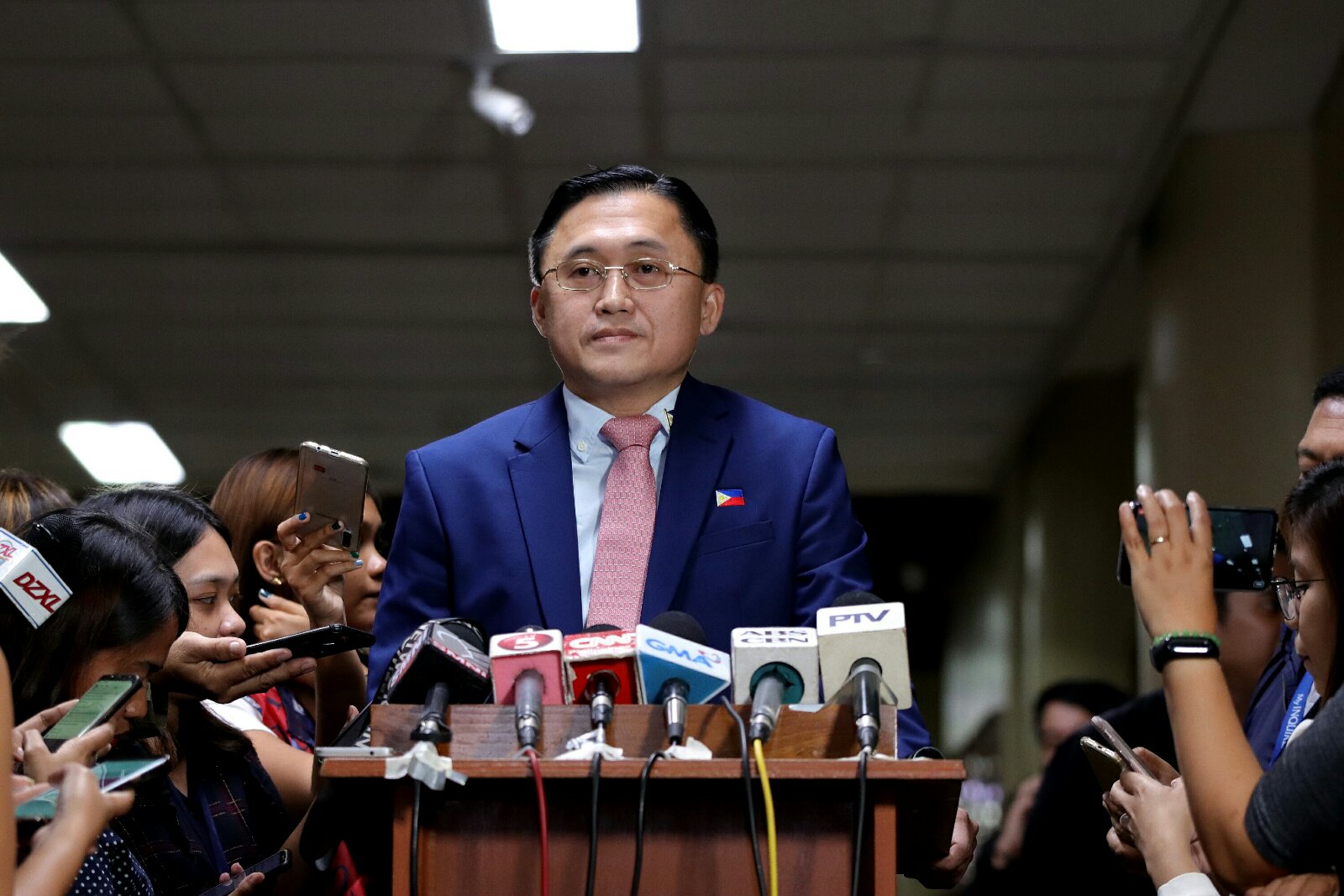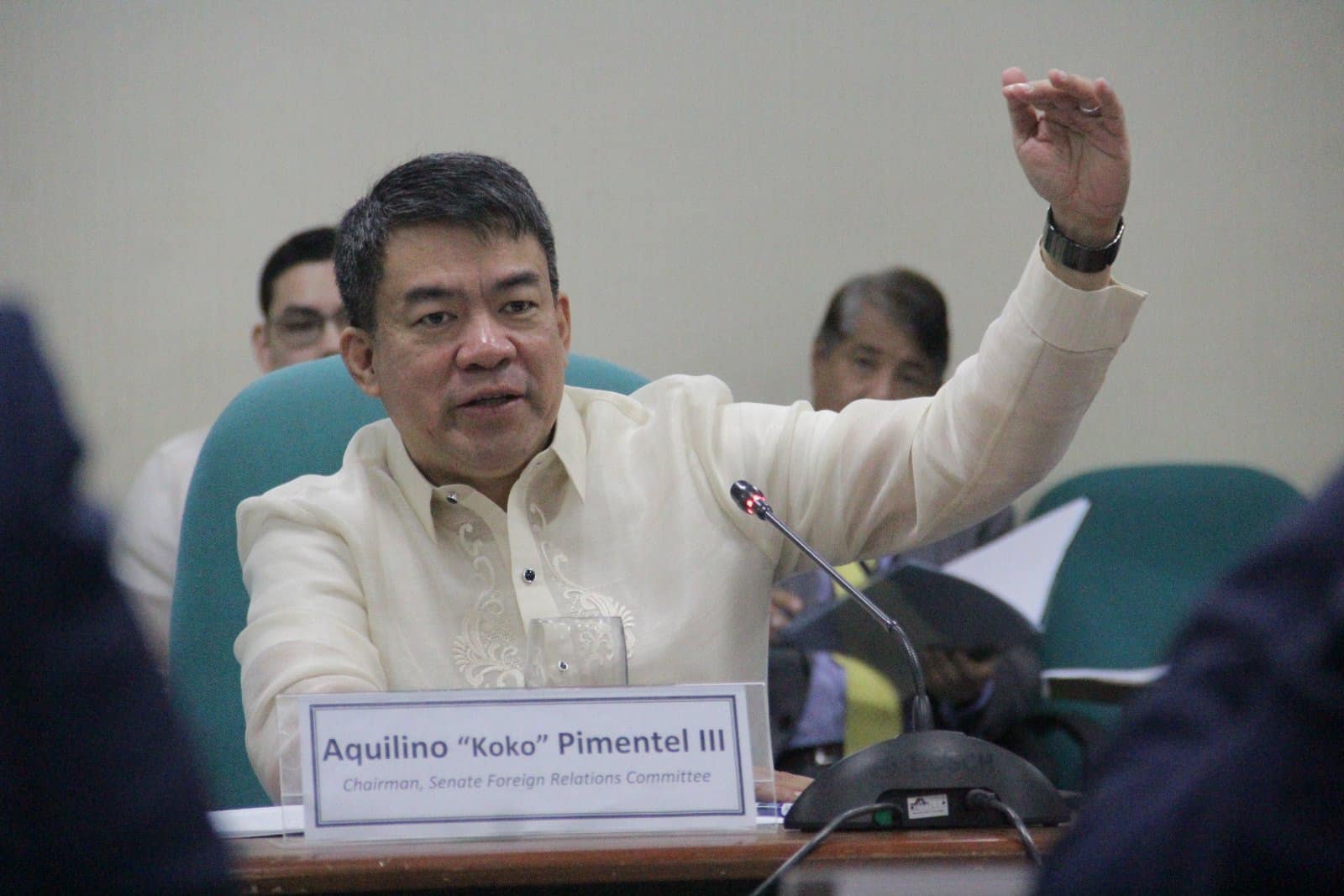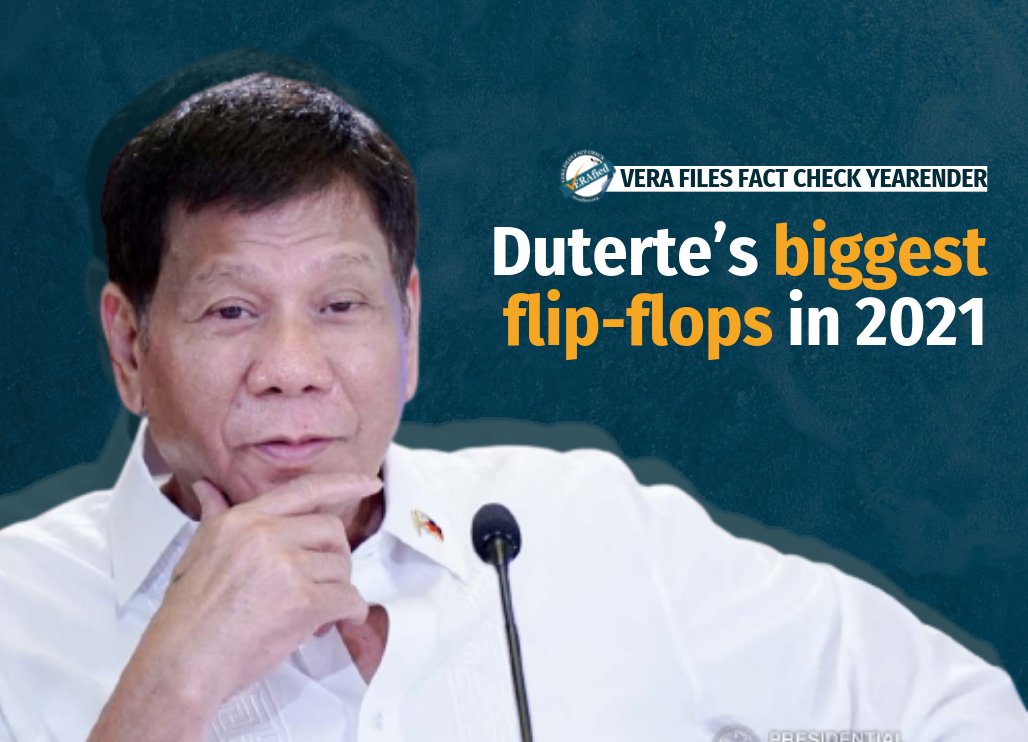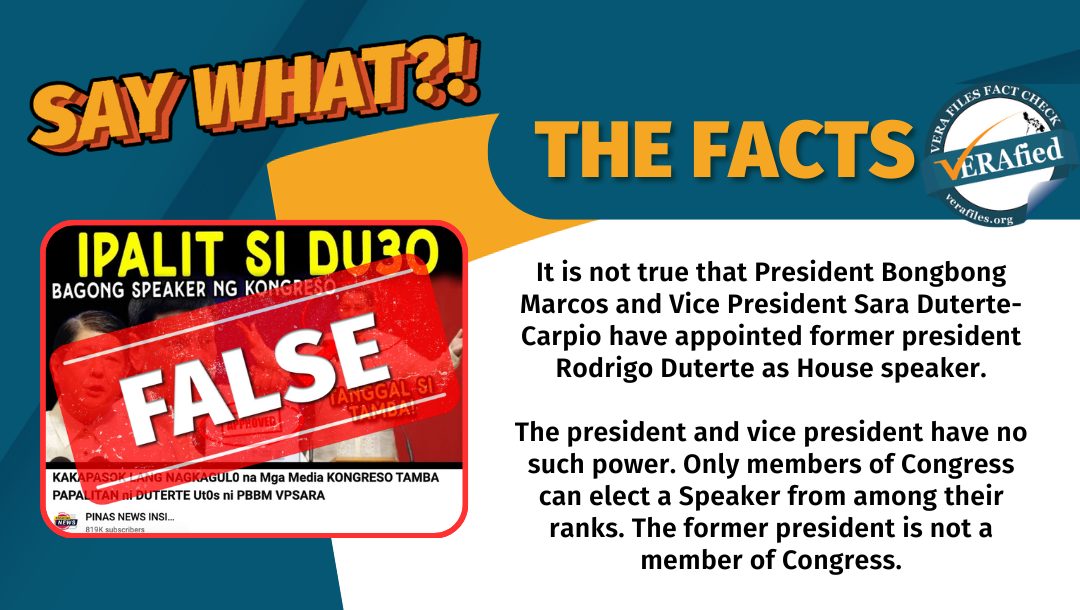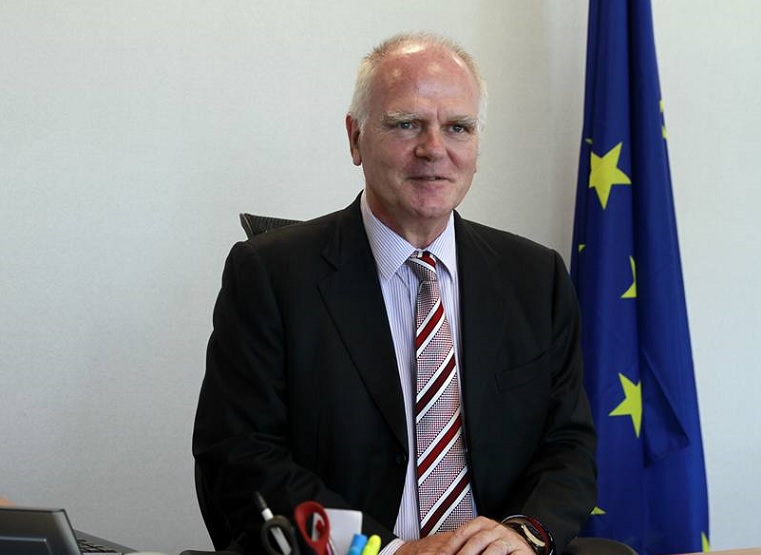
EU Ambassador Franz Jessen
President Duterte’s solution to the country’s problems is “kill, kill.”
The 28-member state European Union has made it clear that it will not allow its money to be used to kill people.
Anticipating a removal of the Philippine’s favored status under EU’sGeneralized Scheme of Preferences wherein tariff on Philippine goods for export to the EU is lowered or removed based on the Philippine government’s compliance with at least 27 agreements and treaties on human rights, labor, environment and governance, the Duterte government announced that it will no longer receive aid from EU.
Duterte considers conditions attached by EU to their aid as interference in the internal affairs of the Philippines.
European Union ambassador Franz Jessen said the Duterte government’s decision would mean the loss of about 250 million euros (P13.89 billion) worth of grants mostly allocated to Muslim communities.
Malacanang knew it was coming. EU Trade Commissioner Cecilia Malmstrom who was here recently for 15th Asean Economic Ministers-EU Trade Commission Consultation expressedconcern over the Philippines’ move to reinstate death penalty, the unabated cases of extra-judicial killingand the efforts in the Duterte-controlled House of Representatives to lower the minimum age for criminal liability from 15 years old to nine years old.
At the celebration of Europe Day Tuesday last week Jessen delivered a message that reading it more closely now had hints of warning underneath the diplomatic language.
Jessen said, “Whatever events may bring in the future, one thing is certain: the EU will continue to put promoting international peace and security, development cooperation, human rights and responding to humanitarian crises at the heart of its foreign and security policies.Europe is gradually increasing its hard power, but at the same time, we do remain a soft power, believing strongly that most solutions, within countries and among countries, require, not hard power, but soft power.”
He stressed the great importance EU puts on human rights, which is poison toDuterte.
Jessen underscored that this year’s Europe Day celebration worldwide is focused on the promotion of rights of children and youth.
“The EU takes children’s and youth’s rights seriously; it is one of the key priorities of the EU external human rights policy. We are a key supporter of the United Nation’s Convention on the Rights of the Child and we have consistently advocated for its implementation within the EU and in third countries. The EU is committed to enforcing children’s and youth rights to protect them from threats such as violence, child labor, armed conflict and sexual exploitation. “
Jessen sounded a hint of warning reminding of EU’s economic clout:” Let me also stress that the EU is the second largest global economy. We are the largest global market and the leading foreign investor in most parts of the globe. The EU has achieved this strong position by acting together with one voice on the global stage, by playing a key role in removing barriers to trade as a member of the World Trade Organization, as well as concluding bilateral trade deals with many important partners around the world — such as the recent CETA deal with Canada. The EU will continue to take a leading role in promoting free trade among countries.”
Lest the Duterte government, which is currently basking in China’s generosity, forget, Jessen issued a reminder that theEU, with 28 member countries that include Germany and France, is the largest foreign investor in the country, providing an estimated 500,000 jobs.
“Since December 2015, the Philippines is the only ASEAN country to enjoy the concrete benefits of the Special Incentive Arrangement for Sustainable Development and Good Governance, GSP+ status, with duty free exports of 66% tariff lines, worth around €1.6 billion in 2016. These economic gains help the country not only economically, but also to strengthen implementation of core international conventions on labor rights, environment protection, governance and human rights,” he said.
Sen. Antonio Trillanes IV, a consistent critic of Duterte, said “ The rejection of the EU aid is another reckless and whimsical decision by the Duterte administration. Instead of being arrogant and hateful, as president of a developing country, Duterte ought to be grateful that there are donor countries that are concerned about the plight of our countrymen and are willing to help us.”
The other day, Malacañang announced the appointment of former Senate PresidentEdgardo Angara as special envoy to the EU.
A most challenging job awaits Angara.
